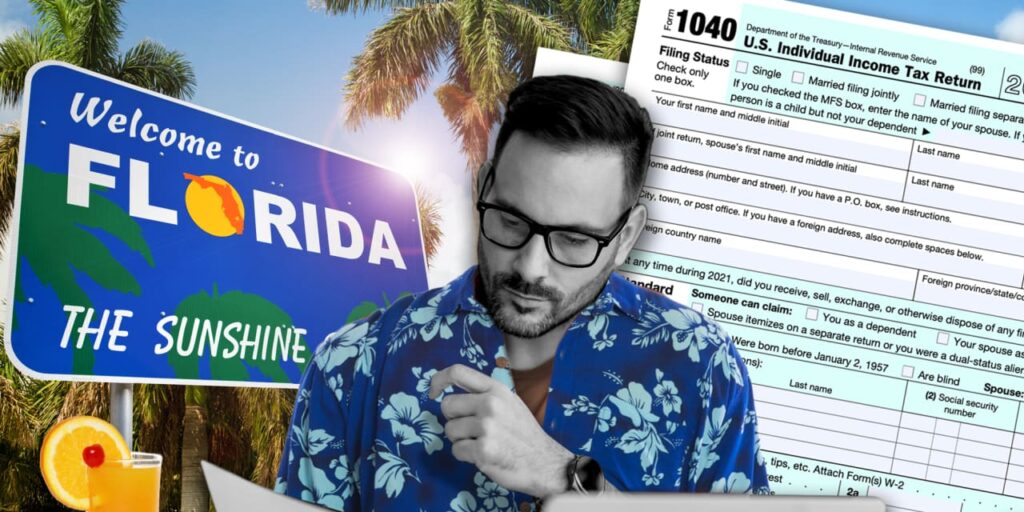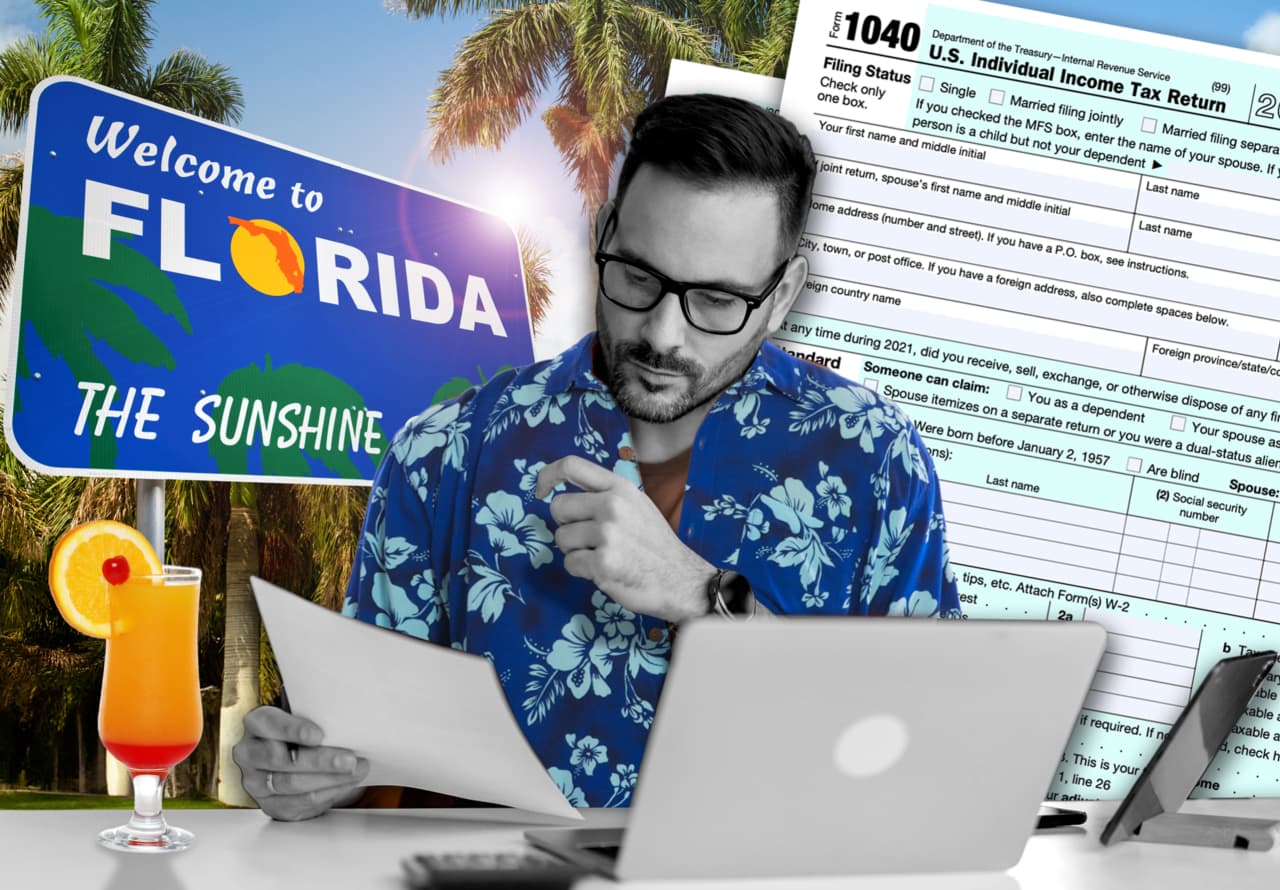Moving to Florida might not be the tax play it’s cracked up to be

Florida, Texas and Tennessee have become hot real-estate markets in recent years, in part because they offer the allure of low taxes and cheap living costs.
But a new analysis of how much state and local taxes cost rich and poor residents in those states throws cold water on the assumption that moving to such states is a tax-smart move.
States including Florida, Texas and Tennessee don’t deliver quite the tax savings that their low-tax images might suggest, especially for lower-income households, according to a new analysis measuring effective state- and local-tax rates paid by various income groups from the Institute on Taxation and Economic Policy, a left-leaning tax think tank.
“States described as ‘low tax’ are often high tax for low-income families,” ITEP said in the report. “Nationally, we find evidence that states with lower taxes for their highest-income earners tend to have higher taxes for their lowest-income residents.”
Florida, Texas and Tennessee high on the list of states where state and local taxes are regressive, cutting deeper into the wallets of lower-income residents than they do those of the highest-income residents, ITEP’s analysis found.
And that’s even the case without a state-level income tax, ITEP researchers said.
A constellation of other taxes is to blame, according to the report. So is a heavy dependence on property taxes and a dearth of tax credits that could turn into refund money, it said.
The Sunshine State’s taxes create the widest divide between the effective state- and local-tax rate for the lowest-income 20% of households and the top 1% of earners.
While the lowest-income Florida households are spending 13.2% of their income on state and local taxes, the richest 1% in Florida spend 2.7% of their income on state and local taxes.
Nationally, the lowest-earning households pay 11.3% of their income to state and local taxes, the report estimates. The richest 1% are handing over just 7.2% of their income.
Tennessee ranks third on the report’s “tax inequality index,” just behind second-ranked Washington state, which also lacks an income tax but recently added a capital-gains tax for high earners and a tax credit for families.
Texas takes the seventh spot, behind fifth-ranked Nevada and sixth-ranked South Dakota — also without state income taxes.
California and New York are ranked 47th and 48th, respectively, while Washington, D.C., is at the bottom of the index.
“Most state-tax systems are regressive, meaning the less you make, the more you pay,” said Carl Davis, research director at ITEP and the report’s lead author. “A lot of times, we’ll call this an upside-down tax code because it’s the exact opposite of the kind of progressive taxation that a huge swath of the public support.”
Over half of people, 52%, say the government ought to be redistributing wealth with heavier taxes on rich households, according to a 2022 Gallup poll. Poll numbers have been around that point since 2013.
The ITEP report comes as more states are trimming back their income taxes. More than 10 states are reducing income-tax rates this year, continuing a recent trend where more states have pulled back on some of their own taxes.
A state’s “low tax” public perception or its lower tax-revenue collection are “reliable indicators” that taxes will be low for the richest residents, the report said. However, it “tells us next to nothing about the tax level being charged to low-income families,” the report continued.
For Sadaf Knight, CEO of the Florida Policy Institute, the report is a chance to flip the script on her state.
A low-tax reputation is “part of our identity and something that people really tout as why people should live in Florida.” But the lack of a personal income tax is also “a driver of our inequitable tax code.”
Knight’s organization has been pushing for a state-level earned-income tax credit. More than 30 states now have the tax credit embedded in their code, geared at low- and moderate-income families, according to the National Conference of State Legislatures.
Florida ranked No. 1 on ITEP’s list of “most regressive” state- and local-tax systems, up from the No. 3 spot in 2018, when ITEP last did the analysis.
Florida, Texas and Tennessee are still hot spots
In that time, Florida and Texas, among other Sun Belt states, have emerged as go-to relocation destinations. Recent data from U-Haul
UHAL,
illustrate the trend.
When people needed one-way truck rentals, U-Haul has reported, Texas and Florida were the top two destinations. Since 2016, Texas hasn’t ranked lower than second on U-Haul’s yearly tally of where do-it-yourself moves are occurring. Florida has been a top-four growth state for nine straight years, U-Haul said.
Read also: Why Jeff Bezos’s move to Miami is a great ‘tax play’ for the billionaire
Tennessee was at No. 5 in U-Haul’s list this year, while New York ranked 43rd and California dead last.
What’s going on?
“I think generally, taxes rank pretty low on people’s list of reasons why they might move from one state to another,” Davis said. Housing costs, wages, family and weather are all important parts of the mix, he noted.
The differing tax bites may be stark for the richest and poorest residents, he said, but the differences are slimmer in the middle band of households.
Other cost-of-living measures help explain the appeal of places like Florida, Texas and Tennessee. The 2023 average cost of living in those states ranked below the national average, according to the Council for Community and Economic Research.
The nonprofit organization, with state and local business groups in its membership ranks, has a long-running index comparing the cost of living in different parts of the country.
State and local taxes are just one part of the landscape for taxpayers, while federal taxes loom large, said Jared Walczak, vice president of state projects at the Tax Foundation, a right-leaning tax think tank.
Pile on the escalating tax bill for higher earners and the benefits geared at lower-income families and the federal tax code “is highly progressive, overwhelmingly so,” he said.
Many states don’t have tax rules getting steeper at the top “not because they don’t care about providing care to lower-income households. They recognize the state tax code may not be the best place to do that,” Walczak.
States are vying with one another to lure people and businesses, he said. “Many states found the path to greater prosperity for all their residents is a more neutral tax policy focused on lower rates and more competition.”
With federal taxes in the mix, Davis said taxes do become steeper higher up — even if the extent is subject to debate.
“It’s been the case many years now that people think higher-income families aren’t paying enough,” Davis said. “The fact that states tend to tax wealthy residents at a lower rate is absolutely playing a role in the public’s frustration with the overall tax system.”









